As a follow-up to our video series on the HCTF Summer Internship Program, we received the following article from the Delta Farmland and Wildlife Trust (DFWT), written by their 2016 intern, Jennifer Sibbald. Jennifer is the third BCIT student to complete a summer internship with DFWT under this program.
Each morning, from May through July, I was up with the sunrise. It wasn’t that I had trouble sleeping or because I’m naturally an early-riser: I was there for the birds.
In spring, as migrating songbirds travel toward their food-rich breeding grounds, many stop in the productive agricultural lands of Delta, BC. This stop-over results in a flurry of morning activity, known by many as the ‘dawn chorus’. This musical cacophony is the sound of many male birds singing to attract a mate, each with their own unique song. In the birding world, these moments are the perfect time to survey birds, as one can identify them by sight as well as sound.

Though waking at dawn may not be for everyone, it was the perfect way for me to spend a summer. As a student in the Ecological Restoration Program at British Columbia Institute of Technology (BCIT), I jumped at the offer of an internship with Delta Farmland and Wildlife Trust (DF&WT). With generous funding from Habitat Conservation Trust Foundation (HCTF), the City of Surrey, BCIT Rivers Institute, and DF&WT, an internship was created to study the richness (number of species), abundance (number of individuals) and diversity of songbirds using hedgerows planted by DF&WT in Delta, B.C.
In Europe, it is well studied and understood that hedgerows provide many ecological and economic benefits to agricultural landscapes. Hedgerows provide shade for livestock, help reduce soil erosion, give homes to beneficial pollinating insects, and provide necessary breeding habitat for many species of songbirds. DF&WT has long recognized the importance of hedgerow habitats, and has sought to create more of these areas through their ‘ Hedgerow Stewardship Program’. In recent years, DF&WT is initiating some of the first hedgerow studies that I am aware of in British Columbia, including the songbird study I was given the opportunity to be a part of.
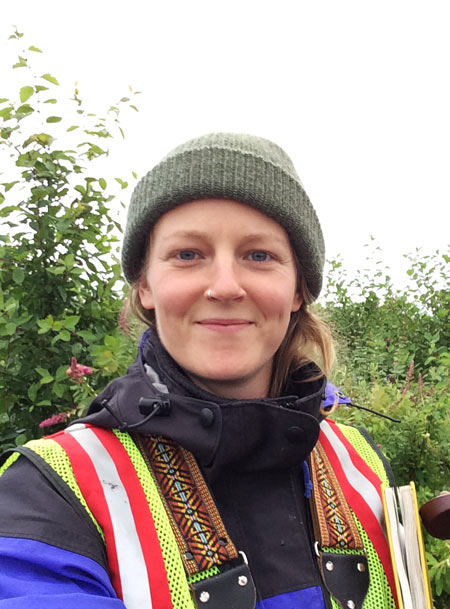 In the spring of 2015, BCIT Ecological Restoration student Arthur Kujawiak began the pilot study focusing on the abundance and diversity of songbirds using DF&WT hedgerows. In 2016, I continued the study to establish a multi-year dataset of the birds using these hedgerows. Additionally, I was empowered by DF&WT to expand the study and ask a few questions of my own. I focused my questioning on whether differences in plant composition of the hedgerows impacted bird communities.
In the spring of 2015, BCIT Ecological Restoration student Arthur Kujawiak began the pilot study focusing on the abundance and diversity of songbirds using DF&WT hedgerows. In 2016, I continued the study to establish a multi-year dataset of the birds using these hedgerows. Additionally, I was empowered by DF&WT to expand the study and ask a few questions of my own. I focused my questioning on whether differences in plant composition of the hedgerows impacted bird communities.
Having been recently immersed in school and ecological theory, I knew that increases in the diversity of plant structure (e.g., different heights) and composition (e.g., different species) typically lead to the increased biodiversity of animals living in an ecosystem. I hypothesized that in hedgerows where plant diversity is greater, we would see a greater diversity of songbirds. From careful study design, data collection, and data summarizing, we found this to be true of DF&WT hedgerows. These findings support the management actions of DF&WT, which strive to plant a diversity of native trees and shrubs along their hedgerows.
After many sunrises, countless hours of data entry, and time spent just listening to the birds, I was able to provide some insight into how songbirds use hedgerows in Delta, BC. As a student, this was a fantastic opportunity ask questions of my own, independently conduct fieldwork, and learn to identify over fifty species of birds by sight and sound! Thanks to the support from DF&WT, HCTF, City of Surrey, and the BCIT Rivers Institute, I have gained invaluable experience for my future as a biologist, and had a summer I will never forget.
A big thank you to Jennifer for sharing her experience with the internship program!



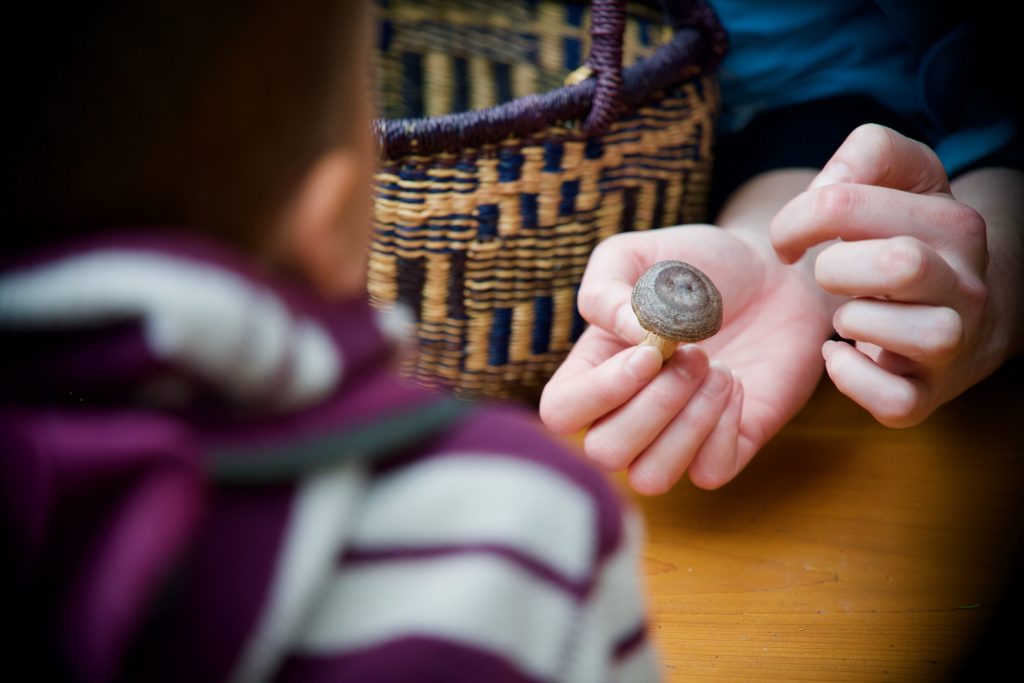
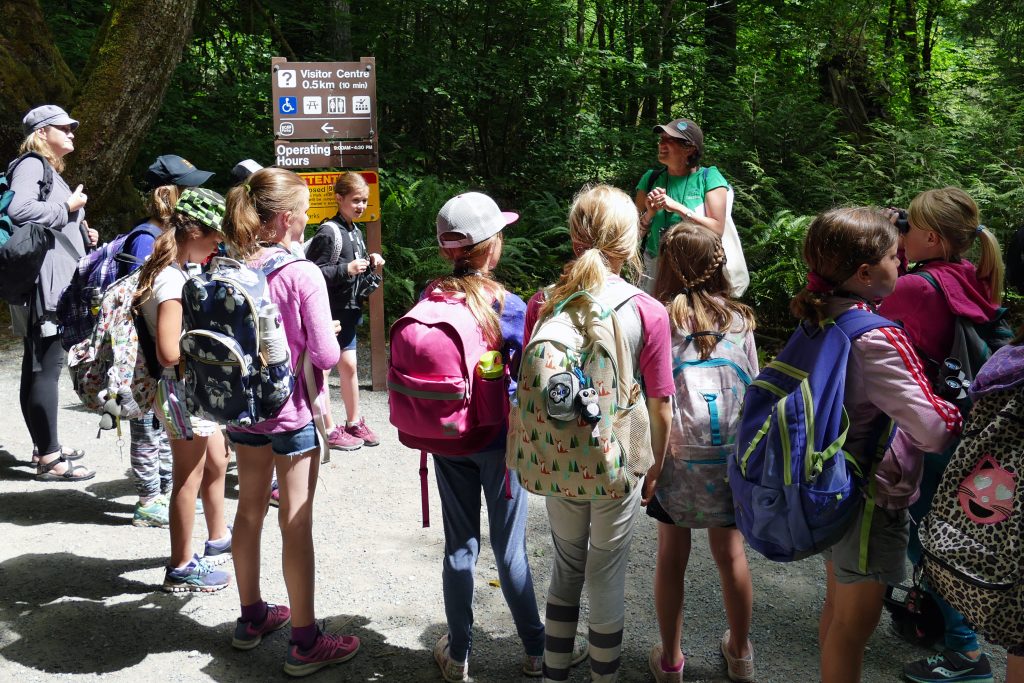
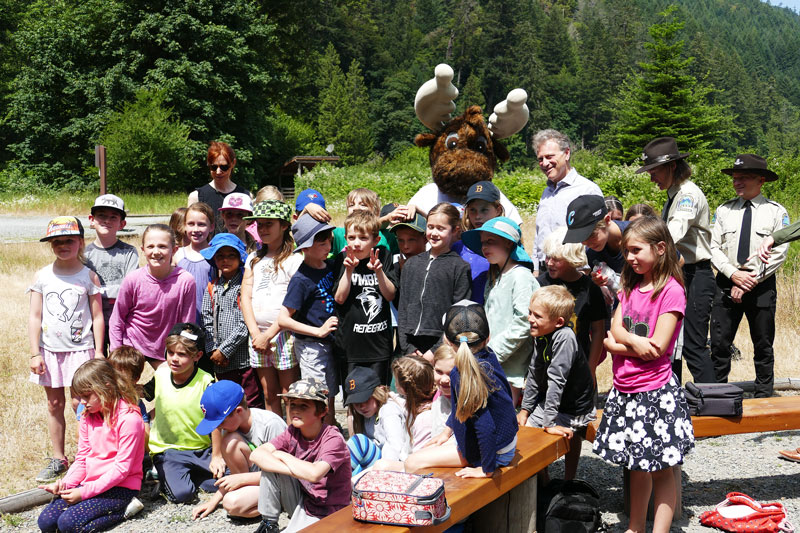
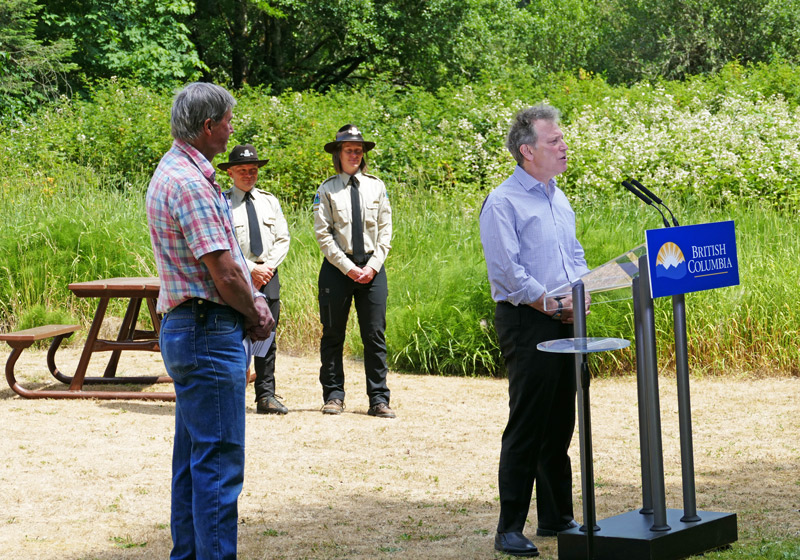
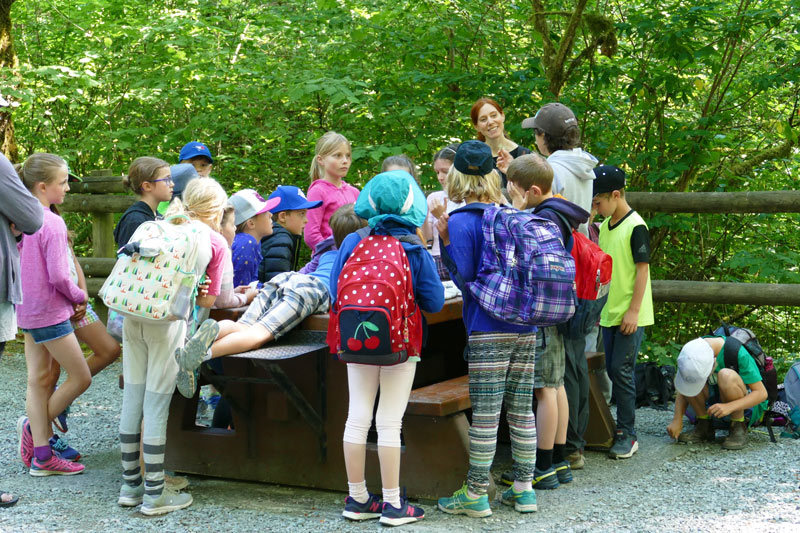
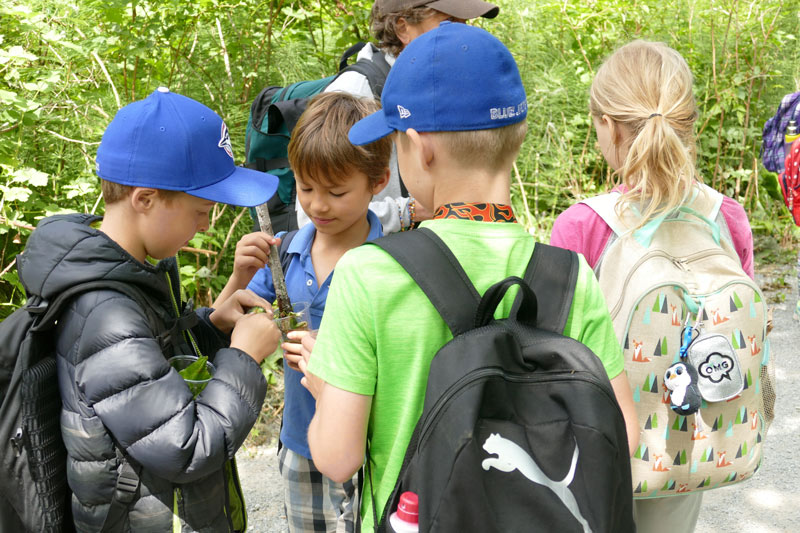
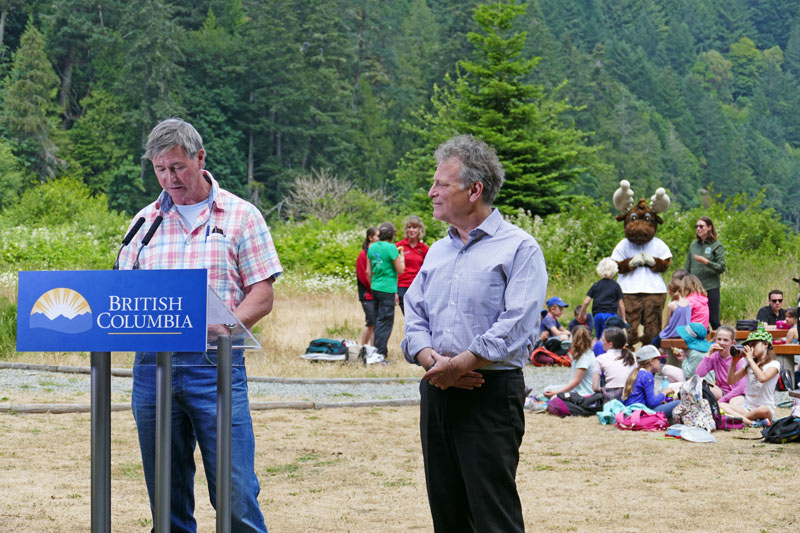
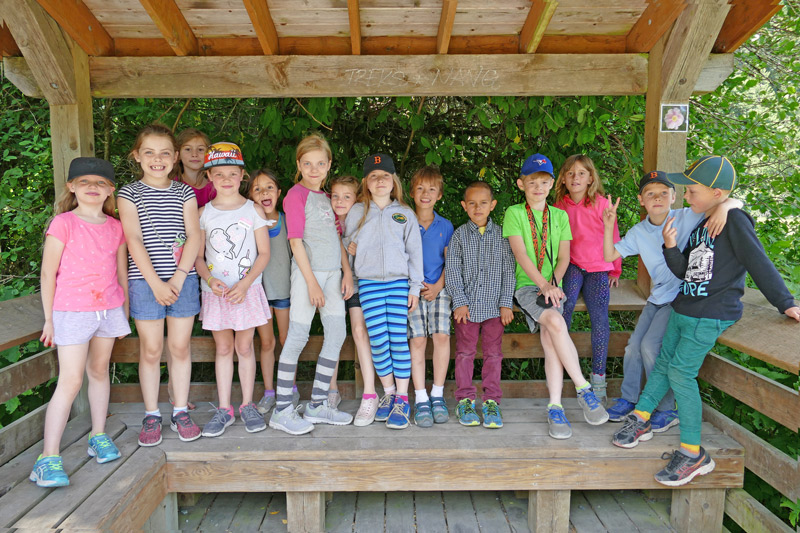
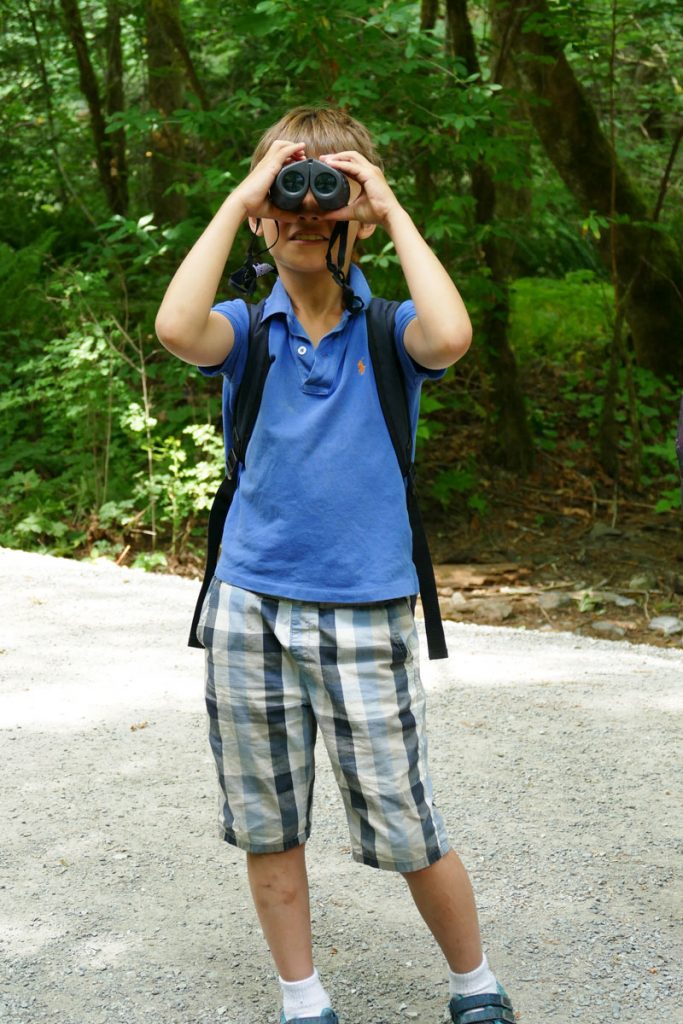
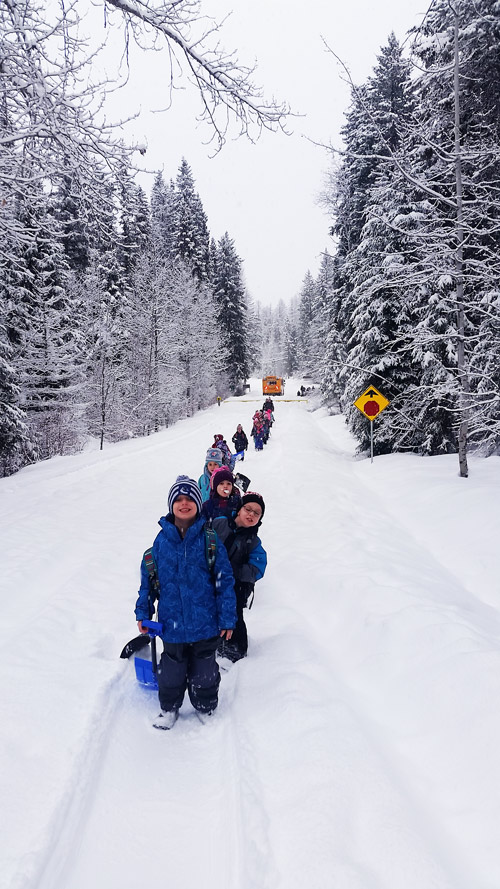

 In the spring of 2015, BCIT Ecological Restoration student
In the spring of 2015, BCIT Ecological Restoration student 


